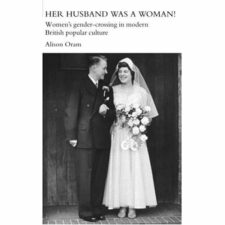
June 24 2010. On this date Akhona Geveza, a nineteen-year-old South African cadet on a cargo ship, disappeared. Her body was later found drifting in the sea off the Croatian coast.
The question is still was she murdered to shut her up? Or did she indeed kill herself? Nokwakha and Zenzile, her parents, believe it was murder. What’s not in question is that attitudes to gender and race seemingly brought about her death. She was being harassed. The irony is that Akhona was aboard the British-registered Safmarine Kariba because of an equal opportunities campaign to encourage young women to become seafarers .
And her story is significant for black women’s history because it raises the question of how many more have been abused at sea, both as passengers and as very occasional crew? How typical and symptomatic is Akhona’s story?
The only child of unemployed parents in the Eastern Cape, she was set for a career at sea. But tensions seemed to come to breaking point for Arkona because she was going to have face officially-organised confrontation. At 10 am that day Akhona’s shipmate, Cadet Nokulunga Cele told the captain that a senior officer had repeatedly raped Akhona. On Akhona’s behalf, and against her wishes, Nokulunga reported that Akhona had said that six weeks earlier the officer, a Ukrainian, had first tried to kiss her while giving her swimming lessons. Later he said sorry, and told her to come to his room. But there he allegedly raped her. Akhona didn’t report it because she feared that nobody would believe her.
On hearing Nokulunga’s story, shipmaster Klaudiusz Kolodziejczyk says he immediately confronted the – still un-named – officer. And he set-up a three-way meeting with the officer and Akhona for 11am, as if it was just a personal problem.
Akhona did not turn up for that meeting. So the captain organised a search, during which pills and a bottle of thinners were found on the ship’s forecastle. Sea Rescue at Rijeka was alerted. Her body was found three days later.[1] Then a (small) international outcry began.
Importantly, several other cadets in the same maritime studies programme anonymously told the South Africa Sunday Times about the way senior officers were threatening cadets’ careers if they did not perform sexual acts. One cadet former female cadet said, ‘“It was like we were dumped in the middle of a game park.”’
The sexual abuse allegations include:
- A female cadet had to have two abortions after being raped at sea
- A married South African Maritime Safety Agency executive forced himself on a female cadet and threatened to cancel her contract if she reported it. His assault resulted in her having his child
- Senior officials raped two male cadets at sea
- At the end of their 12-month training three women trainees were pregnant
- A male cadet refused to have sex with a senior official and was punished by being sent home a month before finishing his training.[2]
The Croatian police later concluded that Akhona committed suicide. Their report said she was in a relationship with an officer that was “consensual but rough”. The seafarers’ union, Nautilus International, had doubts about this and called for a further investigation.
On March 3 2011, the House of Lords heard a new call for a full UK investigation into her death. In a debate marking the centenary year of International Women’s Day, Baroness Jane Campbell backed the Nautilus International call and drew attention to the particular pressures on female seafarers:
‘For women, living and working on board ship requires great dedication, tolerance and self-belief. Often they will be the only female on board, with a group of men used to a male-only environment. At sea it is impossible to walk away… Women from developing countries often secure employment only after making payments to dubious agencies. These women are exploited even before they have set foot on board.’[3]
Akhona’s story is recent – indeed current – history. And maybe it’s a rare case as women workers have only be allowed on ships in large numbers and non-traditional roles, such as cadets, in the last forty years. But to me as a historian of gender at sea, Akhona’s unnecessary tragedy raises crucial questions about centuries of lost maritime history of marginalised people:
- How much has there been such systematic abuse of power at sea over the years?’ (It’s clear that women, black people, young people, and those with least power would be the victims).
- How much have victims, particularly impoverished black women, been silent because they knew they would not be believed and it would harm them? How has that impacted on them?
- Over the centuries, what other seafarers have died, been raped, had abortions, and lost their careers?
The point of uncovering such studies is not just to deplore, but to bring about a situation where this can never happen again. I do history not just because it’s interesting (it is), but because I want to change the future, which includes stopping the kind of bullying Akhona endured.
[2] http://www.news24.com/SouthAfrica/News/No-news-on-sailors-death-20100721 and http://www.ufs.ph/2009-10/node/3879, accessed September 15 2011
[3] Safmarine death probe call, March 7 2011, http://safewaters.wordpress.com/2011/03/07/maritime-safmarine-death-probe-call/ accessed March 9 2011.
